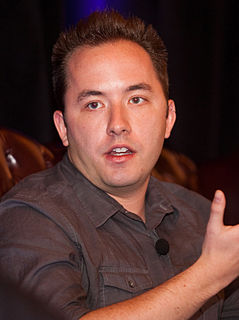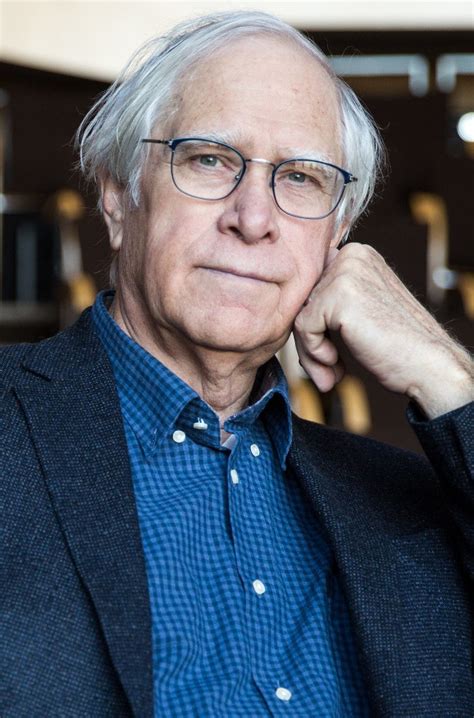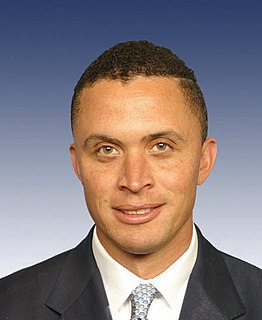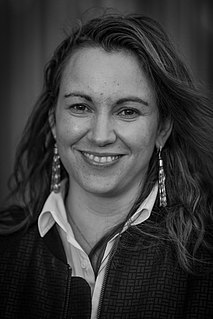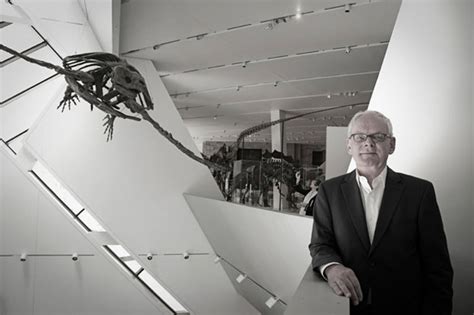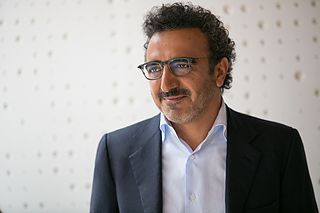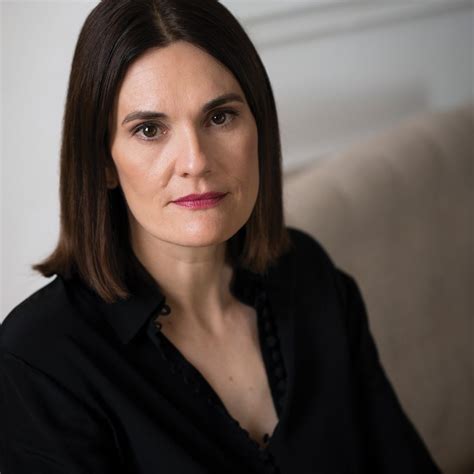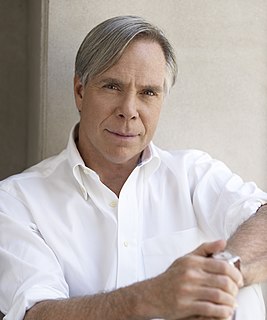Top 524 Silicon Quotes & Sayings - Page 9
Explore popular Silicon quotes.
Last updated on April 15, 2025.
Where you live matters: there’s only one MIT. And there's only one Hollywood and only one Silicon Valley. This isn't a coincidence: for whatever you're doing, there's usually only one place where the top people go. You should go there. Don’t settle for anywhere else. Meeting my heroes and learning from them gave me a huge advantage. Your heroes are part of your circle too - follow them.
People get together and they donate to organizations so that a pile of money can be used to create a message that can be broadcast en masse as part of the a political campaign. They are the lifeblood of Hillary Clinton campaign, the banks and all these big time rich people from Hollywood and Silicon Valley are the mother's milk of her campaign. They are the money. She just doesn't want Donald Trump to have it or any other Republican to have it or any average citizen to be able to bundle his money with other people's money and create an ad or a campaign.
Silicon Valley, "the largest legal creation of wealth in history," was built largely by unprofessional amateurs using math, sand, and the institutions of freedom. The Soviet Union had the greatest mathematicians on earth, and plenty of sand, but without the institutions of freedom their brilliant mathematicians were not empowered to create those devices that are changing the world.
The point of Silicon Valley at least when I moved here was we're all trying to do stuff and none of us quite felt like we fit in anywhere else. But we were all trying to do good things. And the money was just the byproduct of good things. The idea that there's an obligation to have that thing happen in four years or five years or six years, I think we need to disavow that.
Whatever happens in Washington, Wall Street, Hollywood or Silicon Vally in the next ten years, it will be irrelevant if our families don't come together at a much higher level. Without a renaissance of family, no new candidate can rise to save us. No new legislation, policy or program will heal our land.
Our goal is to turn solar electric technologies into a commodity business like computer chips, and make them ubiquitous in the built environment. I'd couple this with a huge commitment to fundamental research in nanostructure to goose the next generation of more efficient, cheaper, dematerialized cells. And if I'm truly czar, I'd emphasize silicon technologies, as that approach is the one least likely to encounter material constraints in supplying an explosive global demand.
Once upon a time ... the only autonomous intelligences we humans knew of were us humans. We thought then that if humankind ever devised another intelligence that it would be the result of a huge project ... a great mass of silicon and ancient transistors and chips and circuit boards ... a machine with lots of networking circuits, in other words, aping-if you will pardon the expression-the human brain in form and function. Of course, AIs did not evolve that way. They sort of slipped into existence when we humans were looking the other way.
Women had been on the verge of taking over the world-the Western world, anyway. Then some sexist pig in Silicon Valley invented the cell phone and women took a sidetrack on which all four billion of them would soon be happily talking to each other twenty-four hours a day, getting nothing else done, and Men Would Be Back.
Banks don't want certain asset classes, and that's created opportunities for private equity, hedge funds, Silicon Valley. In this case I think he was referring to some of the European banks shedding assets, and the big buyers are probably not going to be big American banks. Someone like Blackstone may have a very good chance to buy those assets, leverage them, borrow up a little bit, and do something good there.
I think that's actually what's missing from government, for the most part. We've got a lot of policy people, but we have no technologists, even though technology is such a big part of our lives. It's just amazing, because even these big Silicon Valley companies, the masters of the universe or whatever, haven't engaged with Washington until recently. They're still playing catch-up.
Google is a place filled with open-minded, innovative people from all over the world. It's a fun place to work, and it's a place where different kinds of skills come together. As we grew from a startup, I remember our founders saying that people don't want us to change our culture, but we need to keep making it better. It's an attitude: "We are the ones we've been waiting for." Silicon Valley in general, tech in general, means using technology to solve big problems in the world.
The new buzz word in Silicon Valley is "integration". Work-life "balance" is very 2.0. All these women share ways in which they integrate their family life and work. Facebook's head of Global Solutions, Carolyn Everson, for example, takes her children along on her business trips once a quarter. They meet her clients, visit new places and get a better understanding of what mom does when she isn't at home with them.
Autism is a big continuum, going from someone who remains nonverbal, all the way up to geniuses on Silicon Valley. And some kids are visual thinkers like me. Other kids are pattern thinkers - your mathematicians, your programmers. And there are others, they are word thinkers. Uneven skills. You need to take the thing that they're good at and you need to work on developing it.
I often have said to people that there are really two cities in the country where the outlook is always forward-looking - there is never really a backward-looking tendency. My banking work has taken me out to Palo Alto, what is commonly called Silicon Valley. And you sense out there is always a forward-looking outlook. And New York City.
I guess I would just say that in general, one of my weaknesses is that I love everything. There's too much of everything to keep up with it all. I get bored with Silicon Valley technology a lot. I've always had much more of a draw to the people who are doing things for love than the people who are doing things for money.
EU tech companies face massive global competitors from Silicon Valley and China. Our goal should be to create real European champions and not to focus on a narrow competition between European states. I strongly believe the European Union can help a lot there by promoting a homogeneous and startup-friendly framework that could help European digital champions to become truly global.
Memory is knowledge; character is the box of values and habits in which our knowledge knocks around. People with a lot of knowledge thrown together in a box that encourages social intercourse and experimentation tend to come up with good ideas, which are the engine of change. Think of Silicon Valley in California, or Oxbridge in the United Kingdom.
Apple does all of its research and development in America. It has all these brilliant people sitting in Silicon Valley. But until recently, Apple made nothing in America. Zero. And the jobs that were accessible to a good, well-trained worker that knew how to do welding or assembly, none of those jobs had stayed in America. We don't have the workforce.
Entrepreneurship is seen as if you're in Silicon Valley or New York City and starting an app business or a social-media business, which is cool. But what we really have to focus on is people who make things, and how can we fund them, and how can we encourage people to stay in their community and make a difference in their community.
For a long time, I've ranted against naming your startup community 'Silicon Whatever.' Instead, I believe every startup community already has a name. The Boulder startup community is called Boulder. The L.A. startup community is called L.A. The Washington D.C. startup community is called Washington D.C.
We are at a moment that some of the Silicon Valley companies are feeling the pressure. These days the founder of Twitter apologized that his company promoted some of the things that elected Donald Trump. You don't see that much of these apologizing from Google. From Mark Zuckerberg you are hearing a little bit more of it, but he is a little more "Oh, well, this is what happens because the internet scaled up and everybody has fake news; oh, we are gonna build a better technology".
Big cities like New York are thriving, economically, culturally, in terms of real estate values, and by a slew of other measures. Yet, at the same time, much of the country has been utterly hollowed out. In California, where I live, affluent coastal cities such as San Francisco and the Silicon Valley hubs have lower than national average unemployment, higher wages, higher tax bases. Meanwhile, there are inland counties in California where there's still nearly 20 percent unemployment.
Water: 35 Liters. Carbon: 20 Kg. Ammonia: 4 Liters. Lime: 1.5 Kg. Phosphorus: 800 g. Salt: 250 g. Saltpeter: 100g. Sulfur: 80g. Fluorine: 7.5 g. Iron: 5 g. Silicon: 3 g. And 15 other elements in small quantities. That's the total chemical makeup of the average adult body. For that matter, the elements found in a human being is all junk that you can buy in any market with a child's allowance. Humans are pretty cheaply made.
I saw that we needed to grow but our top line wasn't growing, so we had to find other ways to grow the business. We had to reshape our business and acquire share in a non conventional way. But most tech leaders don't come out of a business background. They really have a parochial point of view. All they know are the go-go years of Silicon Valley. That's the environment in which they were raised.
In order to put it into perspective, as an actor, it's super hard to get on a TV show. If you get on one, it's super hard for that show to be reasonably successful. All of that, on paper, seems pretty special. It's the sum of the parts, really. To roll the dice and come up with this particular show is pretty fortunate. I'm very happy about Silicon Valley series. It's changed everything for me.
I think entrepreneurs are born and not created, and so I think you see a lot of similarities among entrepreneurs in different parts of the world. Their backdrop may be very different, but their drive to create a business and to create jobs remains very much the same, whether it's in Silicon Valley or Kandahar or Kabul.
The dissonance that I felt daily flew in the face of what Silicon Valley says about itself: that it is a meritocracy, that it values intelligence and creativity, that everyone has a fair shot if they just work hard enough. This was true only if you were technical, and even that may not always be enough: in the age of the social network, who you know and who your friends were was becoming increasingly important.
To many of us now, computers, silicon chips, data processing, cybernetics, and all the other innovations of the dawning high technology age are as mystifying as the workings of the combustion engine must have been when that first Model T rattled down Main Street, U.S.A. But as surely as America's pioneer spirit made us the industrial giant of the 20th century, the same pioneer spirit today is opening up on another vast front of opportunity, the frontier of high technology.
The point I'm trying to make is if these networks of communication technologies are owned, monetized, surveilled, and classified by those with power - very few people, mainly white men in Silicon Valley - then it is a global village build upon the ideas, visions, words, and protocols of the few. So it's not global - it's like Epcot center. It's like Disneyland: a small worldview of the larger world.
Many white-collar workers are lucky enough to have creative-class jobs that are satisfying, which is great as long as you're still able to carve out true, work-free leisure at some point. But there's been a kind of sneaky reframing of work as play as the Silicon Valley model has been imported into other fields. Now you see adult offices that look like nursery schools, and staff paintball parties, work cultures that encourage the "We're a family here!" fantasy while preventing workers from going home at a reasonable hour to be with their actual families.
I think if a young person is passionate about something specific, he or she should follow their passion. You look at Bill Gates or Steve Jobs, all of these successes in Silicon Valley, these people have had passion in a specific area and have therefore succeeded. College isn't for everyone. If you don't have that passion or that specific focus in mind, I believe you should go to university and get an education.
Hollywood is one of those places where, traditionally, money has come from - along with New York, Texas, Florida, Silicon Valley in northern California and the unions. But because of the Internet and the way campaigns are financed these days, you don't need traditional financing as much as you used to - and Barack Obama has tapped into that in a big way. But at the end of the day, people in Hollywood care more about [the presidency] than just the trappings of it and the surface type stuff. They care about the issues.
I've met with titans of Silicon Valley because they're investing in our national expansion. I've had lunch with Claire Danes because she sees DonorsChoose.org as the best way to help students in public schools. I would never, ever rub shoulders with such people if I had followed the typical career path in investment banking or whatever.
Most young dealers of the Silicon Chip Era regard a reference library as merely a waste of space. Old Timers on the West Coast seem to retain a fondness for reference books that goes beyond the practical. Everything there is to know about a given volume may be only a click away, but there are still a few of us who'd rather have the book than the click. A bookman's love of books is a love of books, not merely of the information in them.
He’s totally different from the typical jock. He has no ego. That’s unique for someone with such accolades. His strength comes from a higher power. You can’t explain Steve Largent by computer – he doesn’t belong on an NFL field. You put his size and speed in an IBM computer up in Silicon Valley, it would chew up his data card and laugh.
It’s not about having a Silicon Valley attitude—it’s about having an entrepreneurial attitude. It’s about partnering with other organizations in and around your area. It’s about thinking big with entrepreneurs that sit next to you in your coworking space. It’s about collaborating with tech gurus, social media wizards and community leaders at cool business events. It’s the people that make a community an entrepreneurial one—not the location—and it’s up to you to contribute.
There was a transition going on - Baghdad being the intellectual capital of the world where major advances were made in agriculture and mathematics and engineering and medicine and astronomy, and then that all sort of collapsed. And I was trying to understand how such a intellectually fertile environment can lose its compass bearing. Because I think about the creative centers today - countries, or even regions. Will Silicon Valley always be as innovative? Will the United States be innovative, or will we become complacent?
One of the great things about Silicon Valley is, irrespective of how competitive you might be with another company or how closely you might be working with that company, there's a great sort of give and take, and camaraderie from - between - some of the executives in the valley and some of the other investors in the valley.
There is more interest in what is occurring in technology companies that impact news. Such companies don't have the same sense of transparency about what they do. They have a tradition of secrecy about products, mores and decision-making that goes along with Silicon Valley and intellectual property and technology. You cannot step onto the grounds of Google without signing a Non-Disclosure Agreement. That industrial secrecy mentality exists along with a theoretical sensibility about transparency on the Web, which is different than transparency inside companies that profit from the Web.

